Retail Management
Best Luxury Fashion Retail Management & Marketing Strategies
Mon, 19 Jun 2023 10:05:35 GMT
Speak to our Hyperlocal Expert
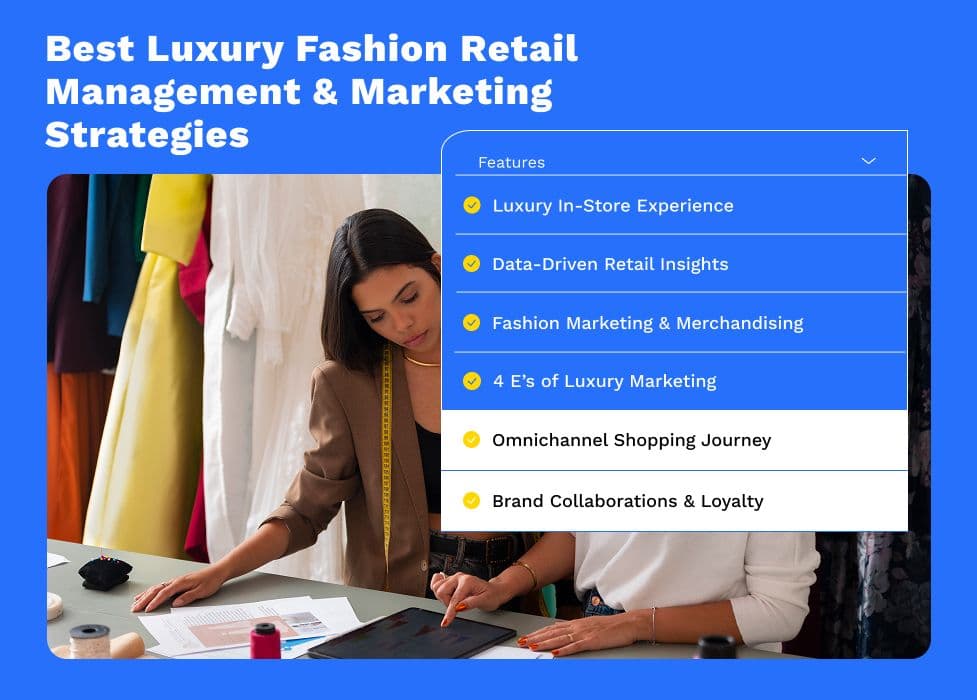
Editor’s Note: This post was originally published in Jun 2023 and was updated in Nov 2025 for accuracy and comprehensiveness.
Luxury retail management involves overseeing high-end store operations, marketing, and customer experience. It's all about delivering top-notch service, offering exclusive products, and creating a posh atmosphere to attract and retain wealthy clientele.
In today’s data-driven era, luxury fashion retail goes beyond design and aesthetics. It is powered by analytics and customer intelligence. With the global luxury market expected to exceed $400 billion by 2025 (Bain & Company), brands are increasingly leveraging data analytics to understand customer preferences, optimize marketing performance, and deliver personalized experiences. From tracking purchase patterns to predicting local demand, data helps retailers make smarter business decisions, boost profitability, and maintain exclusivity while staying ahead in the fast-evolving fashion landscape.
In this article, we explore luxury fashion retail, analyzing successful strategies for top brands. Whether you're passionate about fashion or work in the industry, these insights can help elevate your brand and achieve lasting growth.
What Is Fashion Retail Management?
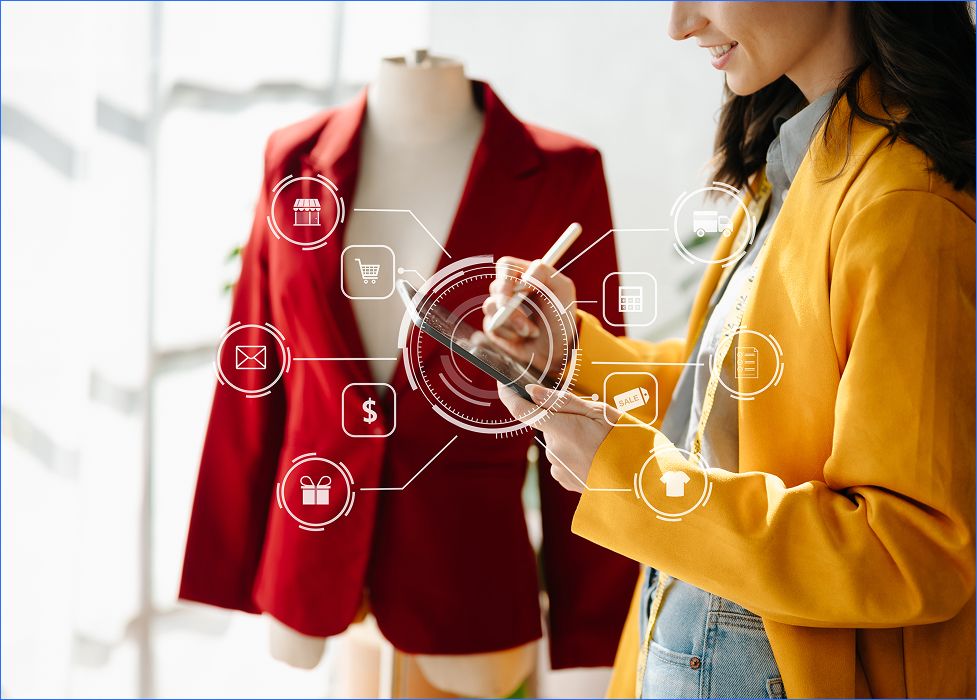
Fashion retail management involves overseeing the operations and activities of a fashion retail business, focusing on maximizing sales, enhancing the customer experience, and driving profitability. It encompasses various aspects such as buying and merchandising, sales management, store operations, marketing and promotions, and team leadership.
Marketing and promotions play a crucial role in fashion retail management. Managers devise marketing strategies, plan promotional campaigns, and utilize various channels such as social media and digital marketing to increase brand visibility and attract customers.
Fashion Retailing, Marketing, and Merchandising: The Core of Fashion Retail Management
Fashion retailing combines retail operations, marketing, and merchandising to create a complete customer experience.
- Retailing: Involves selling fashion products through stores, online platforms, or both, ensuring customers find what they need easily.
- Marketing: Builds visibility and brand loyalty through creative storytelling, campaigns, and customer engagement.
- Merchandising: Focuses on product planning, selection, and visual presentation to make collections more appealing.
Together, these three elements define effective fashion retail management, helping brands deliver consistent value and style to their customers.
What is Luxury Retail Marketing?
Luxury retail marketing focuses on promoting high-end brands by blending exclusivity, storytelling, and personalized experiences. Unlike traditional marketing, it is not about discounts or volume but about building desire and emotional value around the brand.
It combines creative branding, tailored customer journeys, and exceptional service to make every interaction feel special. From luxury fashion boutiques to premium lifestyle stores, the goal is to create a seamless and memorable experience that reflects the brand’s prestige and heritage.
Effective luxury retail management ensures that every detail, from store ambiance to digital presence, reinforces the brand’s promise of quality and sophistication.
The 4 E’s of Luxury Retail Marketing: Experience, Exclusivity, Engagement, and Emotion
In luxury retail marketing, success depends on creating value beyond the product. The 4 E’s help brands connect deeply with their audience:
- Experience: Deliver immersive shopping journeys both online and offline.
- Exclusivity: Offer limited editions, VIP services, or personalized collections to build desire.
- Engagement: Interact authentically through events, digital storytelling, and community building.
- Emotion: Inspire lasting loyalty by making customers feel valued and connected to the brand.
By applying these principles, luxury retail management teams can strengthen relationships, boost brand appeal, and increase long-term customer value.
11 Luxury Fashion Retail Management & Marketing Strategies in 2025
1. Organic Search Optimization for Luxury Retail Visibility

Luxury retail management involves the strategy of organic discovery, which focuses on enhancing a retailer's online presence to boost visibility in organic search results. This strategy utilises search engine optimization (SEO) techniques, including keyword optimization, content creation, and website structure enhancements, specifically tailored to the luxury retail market. By implementing these strategies, luxury retailers can attract organic traffic, increase brand exposure, and reduce dependence on paid advertising.
2. Lead Generation and Nurturing in Luxury Retail
In luxury retail management, lead management plays a crucial role in capturing, tracking, and nurturing leads to transform them into valuable customers. This comprehensive process encompasses lead generation, lead scoring, lead qualification, and lead nurturing through personalised communication and follow-up strategies. By implementing effective lead management techniques, luxury retailers can identify potential customers, prioritise their sales efforts, and enhance conversion rates, ultimately leading to increased success in the luxury retail market.
3. Adopting D2C Trends in Luxury Fashion Retail
In luxury retail marketing, D2C (Direct-to-Consumer) trends represent the increasing adoption of brands selling their luxurious products directly to customers, bypassing intermediaries. This strategic approach allows luxury retailers to establish a direct and intimate connection with their discerning clientele, gain valuable insights, and exercise greater control over pricing, branding, and the overall customer experience. D2C trends in luxury retail marketing frequently entail harnessing the power of e-commerce platforms, implementing personalised marketing techniques, and leveraging data-driven strategies to drive customer engagement and loyalty.
Discover how luxury brands are riding the wave of the D2C trend to redefine success in retail. Watch now to see how they drive growth and foster brand loyalty. "Riding the Wave of the D2C Trend to Success"
4. Local Expansion and Community Engagement for Retail Growth

In luxury retail marketing, local business growth strategies for retail stores revolve around elevating a retailer's presence and market share within a designated geographic region. This entails implementing targeted marketing campaigns tailored to the local audience, actively engaging in community events and initiatives, forging partnerships with local businesses to collaboratively promote products and services, and delivering unparalleled customer service to foster loyalty and entice new customers to the retail store. The objective of local business growth in luxury retail marketing is to establish a strong foothold in the local market and strengthen the brand's reputation and influence.
5. Comprehensive Product Catalogue for Luxury Collections

In luxury retail management, a product catalogue serves as an essential tool for retailers to present their exquisite offerings. It acts as a comprehensive listing or database of available luxury products, offering detailed information such as descriptions, specifications, pricing, and high-quality imagery. By leveraging digital product catalogues, luxury retailers can effectively showcase their exclusive collections, facilitate effortless browsing and searching, and deliver a seamless online shopping experience to discerning customers.
6. Digital Planograms for Smarter Store Layouts
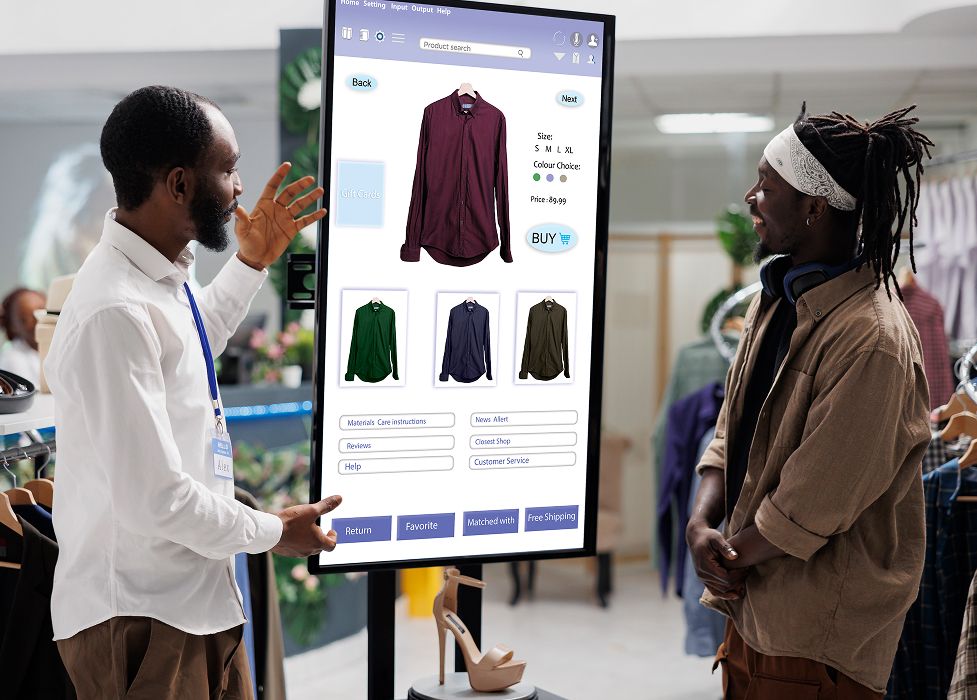
In luxury retail management, a digital planogram plays a crucial role as a visual representation or layout of product placement and arrangement within a retail store. This strategic tool enables retailers to optimise their product displays, shelves, and overall store layout to elevate the customer experience, enhance product visibility, and drive sales of luxurious offerings. By leveraging specialised software, luxury retailers can create and manage digital planograms, enabling them to experiment with various layouts and analyse the impact on customer behaviour. This empowers retailers to make data-driven decisions and continuously refine their store layouts for maximum impact.
7. Mobile-Optimized Websites for Seamless Shopping
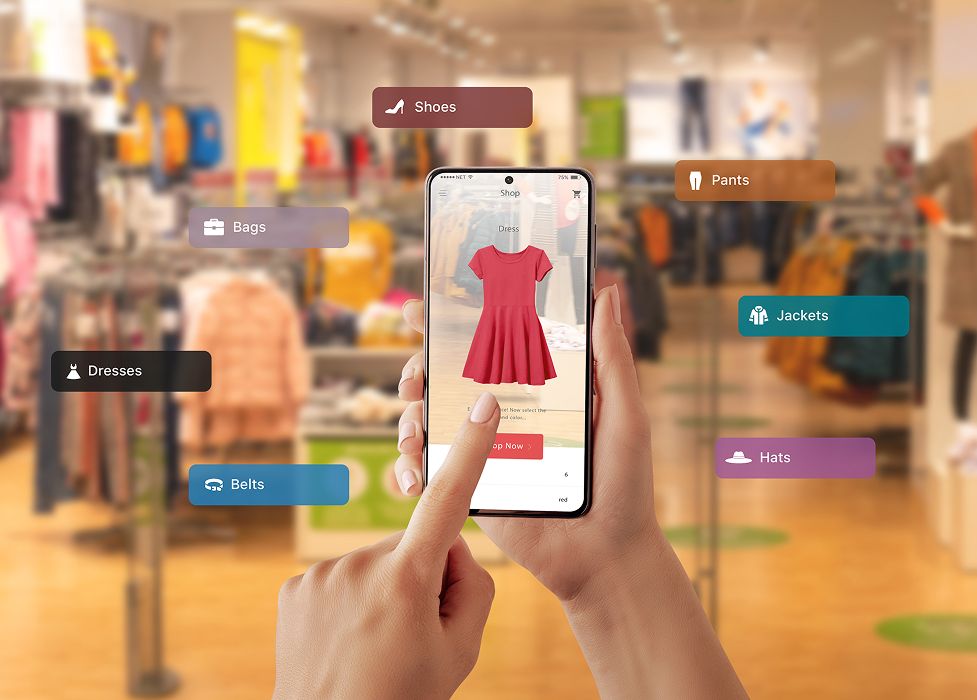
A mobile-friendly website is designed and optimised to provide an optimal browsing and shopping experience on mobile devices. Retailers must make sure that their website is mobile-responsive, loads quickly, and offers a seamless browsing experience on mobile devices as the use of smartphones for online activities continues to grow. A mobile-friendly website improves user engagement, reduces bounce rates, and increases conversion rates.
8. Data-Driven Decisions in Fashion Retail Marketing

For fashion retail marketing, data-driven decision making involves collecting, analysing, and interpreting relevant data to inform strategic choices and operational improvements. Fashion retailers can obtain valuable insights into consumer behaviour, preferences, and market dynamics by utilising data from diverse sources such as sales data, customer demographics, website analytics, and market trends. These insights enable informed decision making across areas like inventory management, pricing strategies, marketing campaigns, product assortment, and customer engagement.
9. Omni-Channel Retail Experience for Luxury Shoppers

Omni-channel retailing provides a seamless shopping experience across multiple channels, online and offline to luxury retail marketing. Fashion brands embrace this approach to cater to customer preferences across physical stores, e-commerce websites, mobile apps, and social media platforms. They ensure consistent branding, messaging, and customer experience. Customers can browse, purchase, and interact with the brand seamlessly across channels. Integrating inventory, customer data, and marketing efforts enables personalised and convenient shopping, fosters loyalty, and maximises sales potential.
10. Leveraging Digital Marketing Channels for Brand Reach

Digital marketing channels empower fashion brands to reach and engage their target audience effectively. Brands can enhance product promotion, increase online store traffic, and improve brand awareness by utilising social media, search engines, email marketing, influencers, and content marketing. Engaging visual content, behind-the-scenes stories, and collection showcases on platforms like Instagram, Facebook, and YouTube foster customer interaction. SEO and paid search ads increase visibility and attract relevant traffic. Email marketing strengthens customer relationships with personalised offers and updates.
11. Retail-Optimized Platforms to Enhance Customer Experience
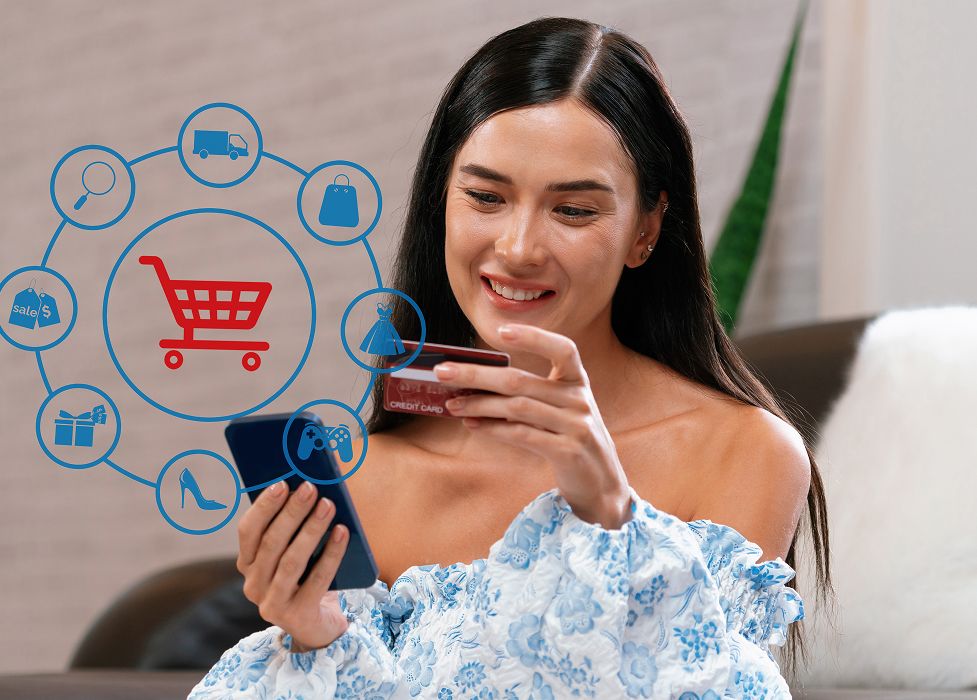
Sekel Tech's retail-optimised platform offers a comprehensive solution for fashion retailers & brands. With features like SEO optimization, hyperlocal marketing, GMB listings microsites, lead management, store locators, CEM strategies, D2C trends integration, first-party data management, product catalogue management, digital planograms, call tracking, and IVR integration, retailers can streamline digital marketing, improve customer experiences, and drive business growth using a single, integrated solution.
Discover the best luxury fashion retail management and marketing strategies in action! Watch as we showcase innovative tactics to elevate your brand in the competitive fashion industry. "Best Luxury Fashion Retail Management & Marketing Strategies"
Fashion Retail Marketing Success: Essential Tips for Growth
1. Build a Strong Fashion Retail Management Plan
Effective fashion retail management ensures smooth operations, better inventory control, and a superior shopping experience that drives repeat customers.
2. Tell a Compelling Brand Story
In luxury retail marketing, storytelling builds emotional connection. Showcase your brand’s craftsmanship and exclusivity through social media and influencer collaborations.
3. Use Data for Smart Marketing Decisions
Leverage analytics in fashion retail marketing to understand customer trends, optimize pricing, and personalize offers for higher conversions.
4. Deliver a Seamless Omni-Channel Experience
Blend online and offline touchpoints. Luxury retail management succeeds when customers enjoy consistent service across stores, apps, and websites.
5. Boost Visibility with SEO & Local Marketing
Optimize your website and Google Business Profile for local searches. Target nearby shoppers looking for premium fashion brands.
6. Leverage Influencer and Social Media Marketing
Partner with fashion influencers to expand reach and engagement. Social media fuels brand awareness and trust in luxury retail marketing.
7. Motivate and Train Your Retail Teams
In fashion retail management, success depends on well-trained staff who understand your brand and work toward common sales goals.
8. Use Smart Retail Technology
Adopt digital tools like Sekel Tech’s retail management platform to streamline marketing, lead tracking, and customer engagement efficiently.
Luxury Fashion Retail Marketing and Branding: How Art Collaborations Elevate Success
In the world of luxury fashion branding, art collaborations have become a powerful way to create exclusivity, elevate aesthetics, and strengthen emotional connections with customers. By partnering with renowned artists, designers, and creators, luxury brands transform their collections into works of art, blending creativity with commerce to stand out in a competitive market.
From limited-edition pieces to immersive in-store installations, these collaborations redefine luxury retail marketing by offering experiences beyond traditional advertising. They generate buzz, attract media attention, and appeal to art-conscious audiences who value craftsmanship and cultural relevance. For fashion retailers, integrating art-driven branding not only enhances visibility but also reinforces the brand’s premium identity and storytelling.
For deeper insights into how brands are positioning themselves in India’s evolving premium segment, check out The Economic Times’ article on the perfect strategy to win the Indian luxury market in 2025. It explores how luxury retailers are adapting to new consumer expectations and digital transformation trends shaping the industry.
Frequently Asked Questions (FAQs)
1. What is Luxury Marketing Strategy?
A luxury marketing strategy focuses on appealing to affluent customers by positioning products or services as premium, aspirational, and exclusive. While each brand’s approach may differ, the goal remains the same: to build desire, trust, and long-term loyalty among high-value consumers through exceptional quality and storytelling.
2. What are the 4 P’s of Fashion Retail Marketing?
The 4 P’s (Product, Price, Place, and Promotion) form the foundation of fashion retail marketing. They guide how brands design collections, set pricing, choose store locations or digital platforms, and promote their offerings to attract and retain customers effectively.
3. How Can Fashion Retail Management Benefit a Business?
Effective fashion retail management helps businesses operate efficiently, boost sales, and strengthen brand image. It ensures smooth supply chain processes, keeps inventory optimized, delivers excellent customer experiences, and helps brands stay relevant in a fast-changing fashion landscape.
4. How Does Fashion Retail Marketing Incorporate Online and Offline Channels?
Modern fashion retail marketing integrates both online and offline touchpoints to meet customer expectations. It blends in-store experiences with e-commerce, social media, and digital campaigns to create a seamless omni-channel journey that enhances convenience and engagement.
5. What Are the Challenges in Fashion Retail Management?
Key challenges in fashion retail management include rapid industry changes, fluctuating demand, and managing seasonal collections. Retailers also face the task of balancing personalization, inventory control, and the use of digital tools to improve operations and customer satisfaction.
Conclusion
In the realm of luxury fashion retail, success hinges on adept Luxury Retail Management and marketing strategies. From crafting exceptional customer experiences to harnessing digital marketing's influence, these tactics are crucial for unlocking your brand's potential. Embrace and customize these methods to position yourself as an industry leader, encouraging growth and fostering a loyal consumer base. Remember, success in Luxury Retail Management is an ongoing journey requiring continuous innovation and adaptability. Stay informed, motivated, and let these strategies guide you toward accomplishing your objectives in the world of luxury fashion retail.
Take Advantage of Sekel Tech’s Retail Management & Marketing for Luxury Fashion Brand
Sekel Tech's Luxury Retail Management and Fashion Retail Management solutions offer luxury fashion brands numerous advantages. Leveraging Sekel Tech's platform, brands can enhance their image and provide a consistent, premium shopping experience. The platform streamlines operations with inventory management, sales tracking, and analytics tools, enabling data-driven decisions and efficiency. Additionally, Sekel Tech's platform includes customer relationship management capabilities, allowing brands to personalize experiences, offer targeted promotions, and foster long-term relationships. With Sekel Tech's solutions, luxury fashion brands can maximize their potential and excel in the competitive market.
Read More Blogs -
1. Top Retail Management Systems, Softwares & Services in 2025
2. 15 Brilliant Retail Management Examples from Top Agencies
3. Leverage Automotive Retail Management & Marketing in 2025
Share
Similar Blogs
Loved this content?
Sign up for our newsletter and get the latest tips & updates directly in your inbox.
There’s more where that came from!